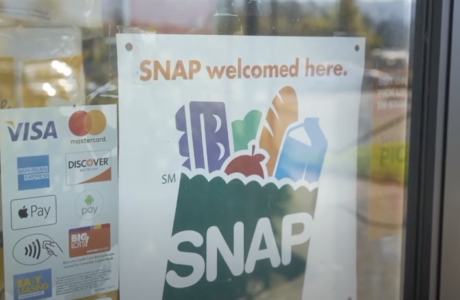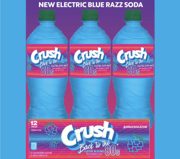Is your state sending out SNAP benefits this week? Here’s who’s getting payments
By
Veronica E.
- Replies 0
It’s official: over 28 US states and territories will distribute Supplemental Nutrition Assistance Program (SNAP) benefits this week.
If your household relies on this critical support, now’s the time to double-check your payment window.
SNAP is one of the most vital social programs in the country, ensuring that families and individuals with limited resources have access to nutritious food.
It’s overseen by the US Department of Agriculture (USDA) and delivered through Electronic Benefit Transfer (EBT) cards, which are used to purchase qualifying groceries.
While the program is federally regulated, each state has some flexibility in how it manages the benefits.

SNAP in US territories
States and territories run SNAP under the same general mission, with some adaptations to meet local needs.
Puerto Rico, for instance, operates under the PAN program—a localized version of SNAP that follows the same goal of ensuring access to food for low-income residents.
Who qualifies for SNAP?
To be eligible for SNAP, two main criteria must be met:
Territories including Washington DC, Puerto Rico, Guam, the US Virgin Islands, and American Samoa administer the program in ways suited to their local communities while adhering to the federal framework.
Also read: What SNAP changes could mean for your grocery budget—23 governors speak out
SNAP benefit amounts for 2025
The exact monthly benefit varies based on household size and net income.
According to the Center on Budget and Policy Priorities (CBPP), here are the maximum monthly SNAP amounts for DC and the 48 contiguous states in 2025:
For households with more than eight members, add $219 for each additional person.
Also read: Could a SNAP benefits error cost your state millions? Here’s what taxpayers need to know
Which states are sending SNAP benefits this week (July 12–19)?
At least 28 jurisdictions are distributing benefits during the week of July 12 through July 19.
Here are the states and their full July 2024 distribution windows:
If your state isn’t listed here, your benefits may have already arrived or are scheduled later in the month.
Check with your state’s SNAP website or local office for specific dates.
Also read: SNAP benefits just expanded in these two states—Find out if you qualify!
How to check your EBT balance and payment status
Want to confirm your payment date or available balance? Here are a few simple ways:
Also read: Your favorite restaurants could soon accept SNAP benefits—here’s what you need to know!
Tips to stretch your benefits
If you’re 60 or older, you may qualify for additional deductions—like out-of-pocket medical expenses—that could increase your monthly benefit.
Ask your local SNAP office about senior-specific guidelines and help with enrollment.
Read next: Will SNAP still cover your favorite beverages? What new state proposals say

Do you or someone you care for use SNAP benefits? What strategies help you make the most of your monthly allotment? Whether it’s advice, questions, or support, your voice matters—and could help someone else.
Let us know in the comments, and remember: at The GrayVine, we’re here to help you stay informed, supported, and connected.
If your household relies on this critical support, now’s the time to double-check your payment window.
SNAP is one of the most vital social programs in the country, ensuring that families and individuals with limited resources have access to nutritious food.
It’s overseen by the US Department of Agriculture (USDA) and delivered through Electronic Benefit Transfer (EBT) cards, which are used to purchase qualifying groceries.
While the program is federally regulated, each state has some flexibility in how it manages the benefits.

Millions of families rely on SNAP benefits each month to help cover the cost of groceries. Image Source: YouTube / WMAR-2 News.
SNAP in US territories
States and territories run SNAP under the same general mission, with some adaptations to meet local needs.
Puerto Rico, for instance, operates under the PAN program—a localized version of SNAP that follows the same goal of ensuring access to food for low-income residents.
Who qualifies for SNAP?
To be eligible for SNAP, two main criteria must be met:
- Income: Households must show that their income is below 130% of the Federal Poverty Level. In 2025, this threshold determines access for many families. While owning a home or work vehicle doesn’t disqualify applicants, other assets like savings may be considered.
- Residency and citizenship: Applicants must be US citizens or legal residents, and they must apply within the state or territory where they live.
Territories including Washington DC, Puerto Rico, Guam, the US Virgin Islands, and American Samoa administer the program in ways suited to their local communities while adhering to the federal framework.
Also read: What SNAP changes could mean for your grocery budget—23 governors speak out
SNAP benefit amounts for 2025
The exact monthly benefit varies based on household size and net income.
According to the Center on Budget and Policy Priorities (CBPP), here are the maximum monthly SNAP amounts for DC and the 48 contiguous states in 2025:
- 1 person: $291
- 2 people: $535
- 3 people: $766
- 4 people: $973
- 5 people: $1,155
- 6 people: $1,386
- 7 people: $1,532
- 8 people: $1,756
For households with more than eight members, add $219 for each additional person.
Also read: Could a SNAP benefits error cost your state millions? Here’s what taxpayers need to know
Which states are sending SNAP benefits this week (July 12–19)?
At least 28 jurisdictions are distributing benefits during the week of July 12 through July 19.
Here are the states and their full July 2024 distribution windows:
- Alabama: July 4–23
- Arizona: July 1–13 (includes July 12 and 13)
- Arkansas: July 4–13 (includes July 12 and 13)
- Delaware: July 2–23
- Florida: July 1–28
- Georgia: July 5–23
- Illinois: July 1–20
- Indiana: July 5–23
- Kentucky: July 1–19
- Louisiana: July 1–23
- Maine: July 10–14
- Maryland: July 4–23
- Massachusetts: July 1–14 (includes July 12–14)
- Michigan: July 3–21
- Minnesota: July 4–13 (includes July 12 and 13)
- Mississippi: July 4–21
- Missouri: July 1–22
- New Mexico: July 1–20
- North Carolina: July 3–21
- Ohio: July 2–20
- Pennsylvania: July 3–14
- Puerto Rico (PAN): July 4–22
- South Carolina: July 1–19
- Tennessee: July 1–20
- Texas: July 1–28
- Utah: July 5, 11, and 15 (includes the 15th)
- Washington: July 1–20
- Wisconsin: July 1–15 (includes July 12–15)
If your state isn’t listed here, your benefits may have already arrived or are scheduled later in the month.
Check with your state’s SNAP website or local office for specific dates.
Also read: SNAP benefits just expanded in these two states—Find out if you qualify!
How to check your EBT balance and payment status
Want to confirm your payment date or available balance? Here are a few simple ways:
- Online: Log into your state’s SNAP portal or EBT card website.
- Phone: Call the toll-free number listed on the back of your EBT card.
- Receipts: Most recent grocery receipts will include your current balance.
Also read: Your favorite restaurants could soon accept SNAP benefits—here’s what you need to know!
Tips to stretch your benefits
- Shop strategically: Look for store promotions, digital coupons, and weekly sales.
- Buy in bulk: Stock up on shelf-stable items like rice, beans, or pasta.
- Visit local farmers markets: Many accept EBT and some may offer discounts.
- Plan ahead: Weekly meal planning helps reduce waste and saves money.
- Explore local support: Food pantries, senior centers, and churches often offer supplemental groceries or hot meals.
If you’re 60 or older, you may qualify for additional deductions—like out-of-pocket medical expenses—that could increase your monthly benefit.
Ask your local SNAP office about senior-specific guidelines and help with enrollment.
Read next: Will SNAP still cover your favorite beverages? What new state proposals say
Key Takeaways
- Over 28 states and territories are distributing SNAP benefits this week, with payment dates depending on state-specific schedules.
- SNAP provides monthly financial support through EBT cards to help eligible households purchase food and groceries.
- Eligibility is based on income, assets, citizenship, and residency, with maximum benefits in 2025 ranging from $291 (one person) to $1,756 (eight people).
- Seniors may qualify for additional SNAP deductions—check with local offices to maximize your benefits.
Do you or someone you care for use SNAP benefits? What strategies help you make the most of your monthly allotment? Whether it’s advice, questions, or support, your voice matters—and could help someone else.
Let us know in the comments, and remember: at The GrayVine, we’re here to help you stay informed, supported, and connected.






